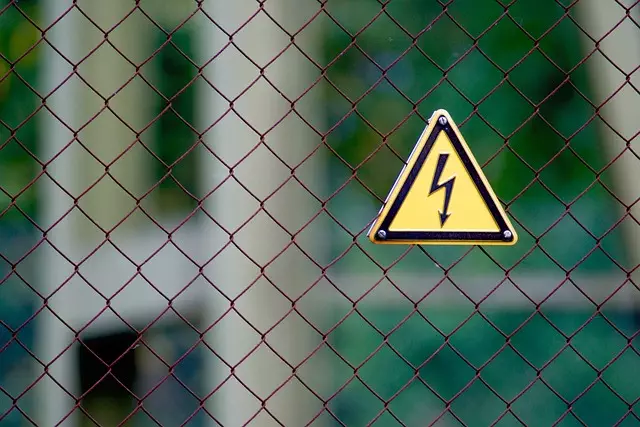Kratom extract, derived from Mitragyna speciosa leaves and containing higher levels of active alkaloids mitragynine and 7-hydroxymitragynine than regular kratom leaves, is a natural product that users claim offers potent stress and anxiety relief. While its efficacy for these purposes is under scientific scrutiny, with experiences varying widely among individuals, the extract's enhanced potency means it should be used cautiously due to its stronger effects. It's essential for users to start with a small dose to gauge personal sensitivity and consider individual health factors before adopting kratom into their wellness routine. Given the lack of comprehensive research on its safety and efficacy, consulting healthcare professionals is advisable, particularly for those on other medications or with existing health issues. Is kratom extract stronger than traditional kratom? Yes, it is, and users should approach it with care to ensure safe use and to avoid potential adverse reactions. Personalization of dosage and careful consideration of one's health status are critical for maximizing the benefits while minimizing risks.
Exploring the therapeutic potential of kratom extract as a natural remedy for stress and anxiety, this article delves into its efficacy, strain variations, and optimal dosing to alleviate mental tension. Uncover the nuances of kratom’s role in stress management, and learn how to harness its calming properties without resorting to synthetic alternatives. Is kratom extract stronger than other methods? We investigate this question, offering insights for those seeking effective, plant-based solutions for serenity and well-being.
- Unraveling the Potency of Kratom Extract: Is It Stronger for Stress and Anxiety Relief?
- Understanding Kratom's Role in Stress Management: Mitigating Anxiety Through Natural Supplements
- Navigating Kratom Strains and Dosages for Effective Stress and Anxiety Reduction
Unraveling the Potency of Kratom Extract: Is It Stronger for Stress and Anxiety Relief?

Kratom, a botanical derived from the leaves of Mitragyna speciosa, has garnered attention in natural health circles for its potential therapeutic effects, particularly for stress and anxiety management. The potency of kratom extract, which contains higher concentrations of the active alkaloids mitragynine and 7-hydroxymitragynine compared to raw kratom leaves, is a topic of considerable interest among researchers and users alike. Is kratom extract stronger in its ability to provide relief from the grips of stress and anxiety? The answer lies within the intricate balance of these alkaloids and their interaction with the human body’s neurological systems. Users often report that kratom extract, due to its more condensed form, can deliver effects that are both quicker and potentially longer-lasting than those experienced with traditional kratom leaf powder. This heightened potency is what makes kratom extract a compelling option for individuals seeking a more robust solution for managing their stress and anxiety levels. However, it is crucial to approach the use of any supplement, including kratom extract, with caution and an understanding of its legal status and potential side effects in one’s jurisdiction. The right dosage and careful consideration of individual health factors are essential when incorporating kratom extract into a wellness regimen aimed at reducing stress and anxiety.
Understanding Kratom's Role in Stress Management: Mitigating Anxiety Through Natural Supplements

Kratom, a tropical evergreen tree native to Southeast Asia, has garnered attention in natural health circles for its potential role in stress management and anxiety mitigation. The leaves of kratom contain alkaloids, such as mitragynine and 7-hydroxymitragynine, which are believed to interact with the body’s opioid receptors, influencing neurotransmitter systems that regulate mood and pain perception. While the scientific community continues to investigate kratom’s effects, many users report positive outcomes in managing stress and reducing anxiety levels. It is important to approach these reports with caution, as individual experiences can vary greatly, and more research is needed to fully understand kratom’s efficacy and safety profile.
When considering kratom extracts, it’s worth noting the concentration of alkaloids can affect potency. An extract is typically more concentrated than traditional kratom powder, meaning a smaller amount may be required for an effect. For those seeking natural alternatives to manage stress and anxiety, understanding the distinction between different types of kratom products, such as extracts versus standard leaf powder, is crucial. This distinction can influence the user’s experience and the dosage needed to achieve the desired outcome. As with any supplement, it is advisable to start with a lower dose to gauge individual sensitivity and to consult with a healthcare professional before integrating kratom into one’s health regimen, especially if taking other medications or managing a health condition that could be affected by its use.
Navigating Kratom Strains and Dosages for Effective Stress and Anxiety Reduction

Kratom, a plant native to Southeast Asia, has garnered attention for its potential therapeutic effects on stress and anxiety. Prospective users navigating kratom strains and dosages should first understand the nuances between different strains and their respective alkaloid profiles. Mitragyna speciosa, commonly known as kratom, contains over 40 alkaloids, with mitragynine and 7-hydroxymitragynine being the most prominent. These compounds are believed to interact with brain receptors associated with mood regulation, which can influence stress and anxiety levels.
When considering kratom extracts for managing stress and anxiety, it’s crucial to evaluate the concentration of alkaloids, as a higher alkaloid content typically means a stronger effect. For example, an iskratom extract, which has a higher concentration of mitragynine, may be perceived as stronger than traditional kratom leaf powder. It’s essential to start with a lower dosage to gauge individual sensitivity and to avoid adverse effects. Generally, a moderate dose, often defined as 2-5 grams of leaf powder or its equivalent in extract form, is recommended for novice users. However, individual needs may vary, and it’s advisable to consult with a healthcare provider before incorporating kratom into one’s wellness regimen, especially if other medications are being taken. Adjusting the dosage and strain selection based on personal tolerance and the specific symptoms of stress and anxiety will facilitate a more personalized and effective approach to harnessing kratom’s benefits without overstepping into potentially hazardous territory.
In conclusion, the exploration of kratom as a natural supplement for managing stress and anxiety offers promising insights. The potency of kratom extract, particularly when considering the right strain and dosage, plays a significant role in its effectiveness. As discussed, understanding how kratom interacts with the body’s stress response can lead to better management of these conditions. It is clear that kratom has the potential to be a strong ally in the quest for mental well-being. However, it is crucial to approach its use responsibly and under professional guidance due to its varying strains and potencies. Individuals should consider consulting healthcare providers before integrating kratom into their regimen to ensure safe and effective stress relief. With careful consideration and proper guidance, kratom can be a valuable tool in navigating the challenges of stress and anxiety.






